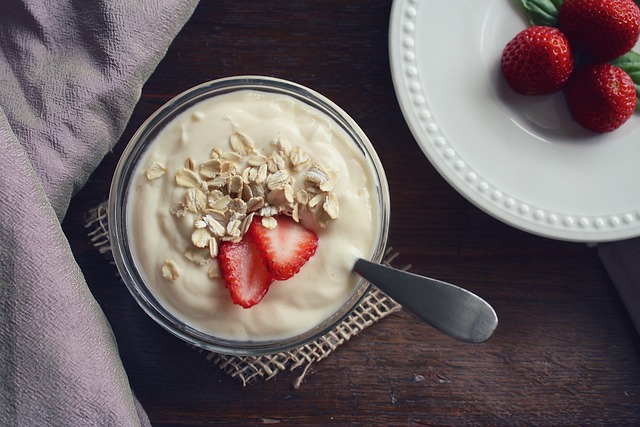The Surprising Benefits of Probiotics for Gut Health
Gut health has become a hot topic in recent years, and for good reason. The health of your gut can have a significant impact on your overall well-being, from your immune system to your mood. Probiotics are an essential tool for maintaining good gut health, but many people are still unaware of their benefits.
What are probiotics?
Probiotics are live bacteria and yeasts that are beneficial for your health, particularly for your digestive system. These helpful microorganisms are primarily found in fermented foods like yogurt, kefir, sauerkraut, and kimchi, as well as in supplement form.
How do probiotics work?
The human digestive system is full of both friendly and harmful bacteria, and the balance between the two is essential for good gut health. Probiotics work by introducing good bacteria into your gut microbiome, which can overcome harmful bacteria and improve your digestive system’s overall health.
Probiotics also help your gut produce more enzymes that break down food and absorb nutrients, which further enhances your digestive system’s function. Additionally, probiotics can help stimulate your immune system, reducing inflammation and other digestive distress associated with a damaged intestinal lining.
The benefits of probiotics for gut health
1. Alleviate digestive disorders: Probiotics are effective in reducing the symptoms associated with digestive disorders like irritable bowel syndrome (IBS) and ulcerative colitis, to name a few. By introducing beneficial bacteria to your gut, probiotics help reduce inflammation and restore balance to your gut microbiome.
2. Boost immune function: Good gut health is integral to your immune system’s function, and probiotics can help by strengthening your gut’s barrier function. By creating a protective layer, probiotics help stop harmful invaders like bacteria, toxins, and viruses from penetrating the body.
3. Support mental health: Studies suggest that probiotics may have a positive impact on mental health, particularly in reducing anxiety and depression symptoms. The connection between gut health and mental health is still being studied, but there is a growing body of evidence that the two are closely linked.
4. Improve heart health: The gut microbiome appears to play a role in cardiovascular health. Research has shown that probiotics can help lower LDL cholesterol levels and reduce blood pressure, both risk factors for heart disease.
How to incorporate probiotics into your diet
If you’re looking to improve your gut health, there are several ways to incorporate probiotics into your diet:
- Yogurt is an excellent source of probiotics, particularly Greek yogurt, which contains several strains of beneficial bacteria. Look for brands that say live and active cultures on the label to ensure that the probiotics are still active.
- Kefir is a fermented milk drink that is similar to yogurt but has a thinner consistency. It contains several strains of bacteria as well as yeast, making it a more potent probiotic source than yogurt.
- Sauerkraut is a fermented cabbage dish that has been around for centuries. It is high in probiotics and is a good option if you’re looking for a non-dairy source of probiotics.
- Kimchi is a spicy, fermented cabbage dish that is a staple in Korean cuisine. Like sauerkraut, it’s high in probiotics and has a unique taste that many people enjoy.
- Probiotic supplements are available in capsule, tablet, or powder form. Look for products that contain multiple strains of bacteria and have at least one billion colony-forming units (CFUs) per serving.
Final thoughts
Probiotics are a powerful tool for maintaining gut health, and their benefits extend far beyond digestion. By introducing good bacteria into your gut microbiome, probiotics can help alleviate digestive disorders, boost immune function, support mental health, and improve heart health. If you’re looking to improve your gut health, consider incorporating probiotic-rich foods or supplements into your diet, as they can have a significant impact on your overall well-being.







